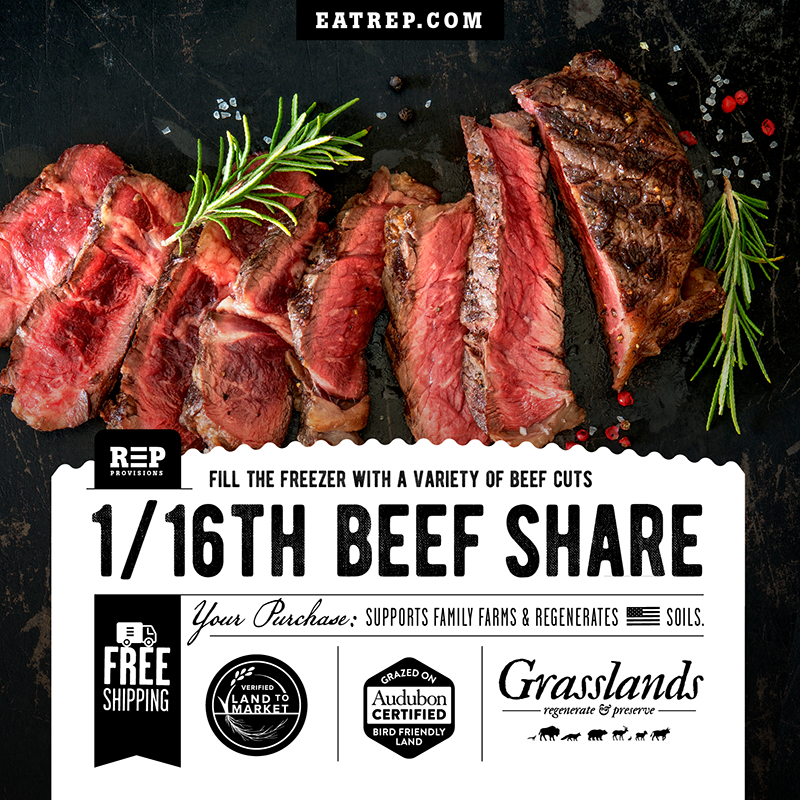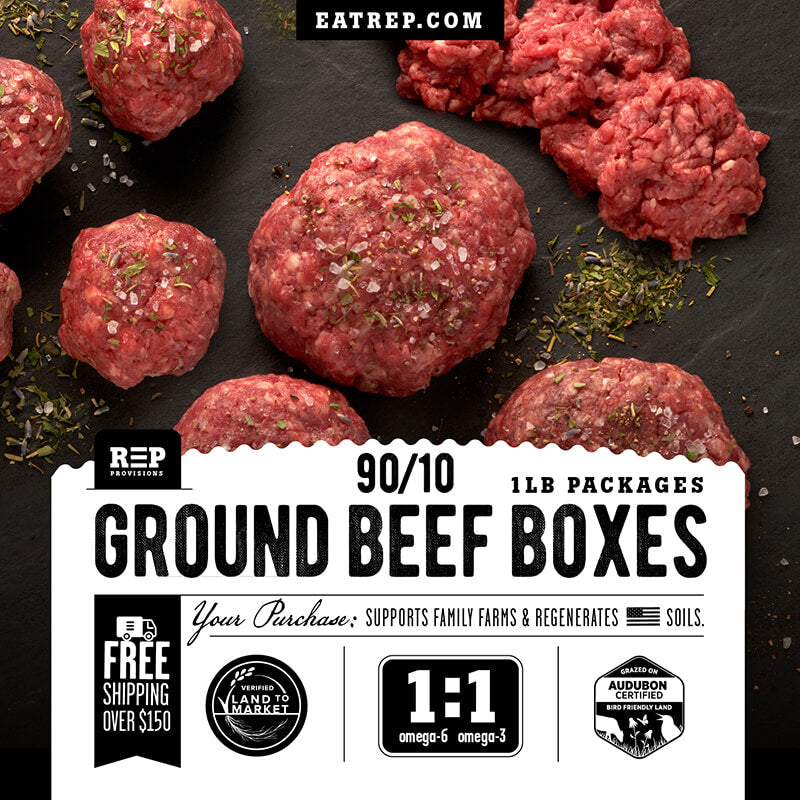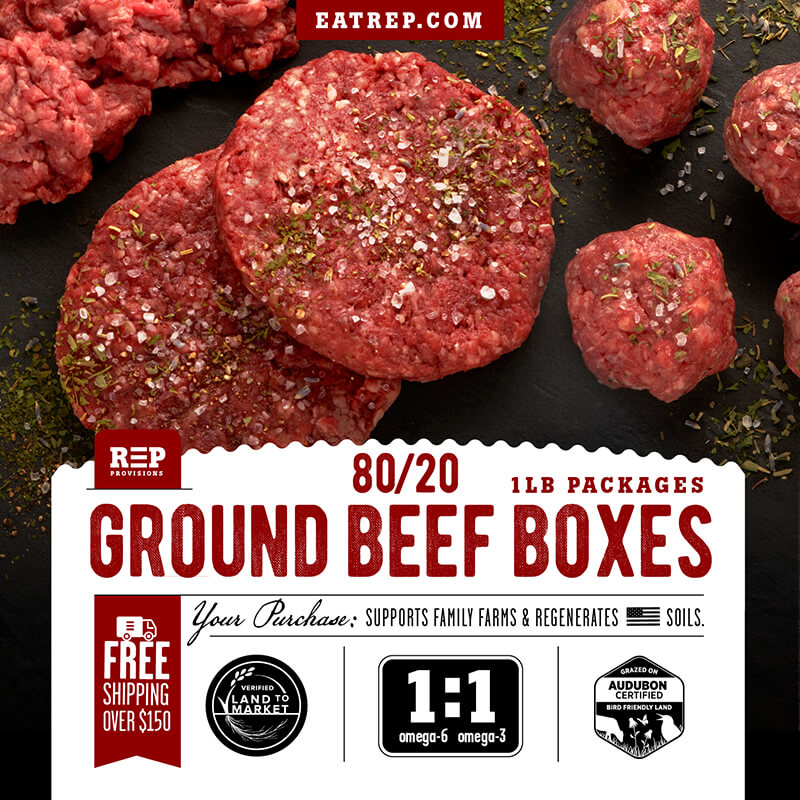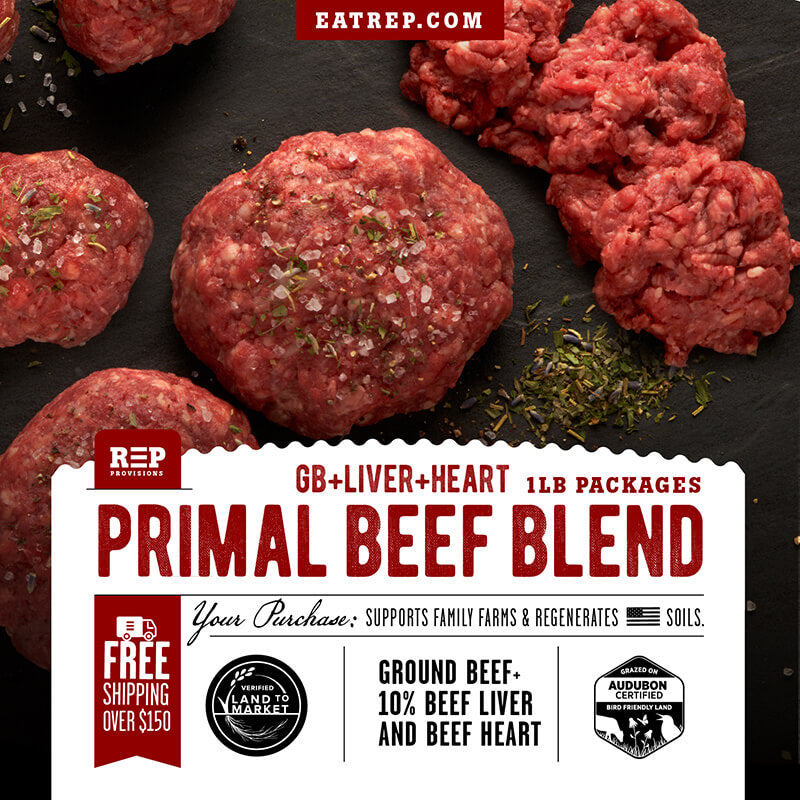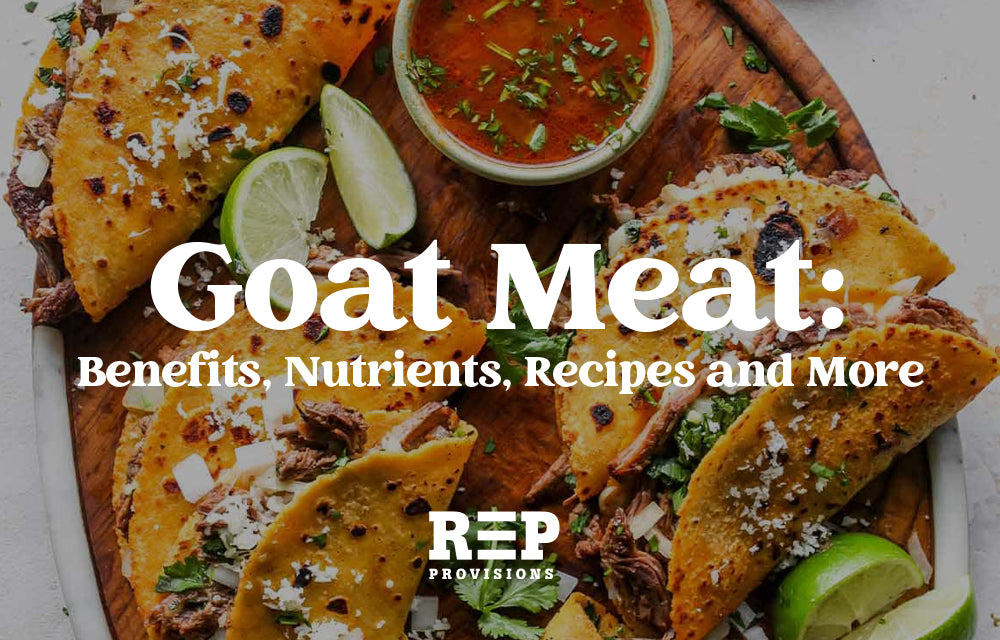
The Basics: Goat meat
Around the world you’ll find aromatic stews, sumptuous curries, and goats roasted over a crackling open fire. Goat meat, although less common in the USA, is having its moment – and we’re here and ready to get into everything goat.
Is Goat Meat Healthy?
Protein
Goat meat is a high quality source of protein – meaning it contains all the essential amino acids your body needs. You need protein for growing and building bones, muscles, and skin, as well as oxygenating your blood, and repairing damaged tissues.
Fat
For individuals looking to increase protein intake while limiting fat consumption, goat meat provides a delicious alternative to pork or beef. Although we need healthy fats in our diets, opting for a lean protein like goat meat can help prevent weight gain – and offer some variety in your diet.
Connective Tissues
Rich in connective tissues, goat meat boasts benefits for the whole body from joint health to digestion. Full of collagen and elastin, one of the best ways to protect yourself against premature aging and sagging skin is through incorporating connective tissues into your diet.
B-Vitamins:
The importance of B vitamins cannot be emphasized enough. Regarded as the building blocks of a healthy body, B vitamins have direct effects on your energy levels, brain function, and cell metabolism.
Goat meat contains healthy levels of:
- Vitamin B12: Essential for nerve function and the production of DNA and red blood cells.
- Niacin (Vitamin B3): Supports energy metabolism and skin health.
- Riboflavin (Vitamin B2): Necessary for energy production and maintaining healthy skin and eyes.
- Thiamine (Vitamin B1): A key player in the production of neurotransmitters and the synthesis of DNA and RNA.
- Pantothenic Acid (Vitamin B5): Great for the synthesis of hormones, and important fatty acids.
Minerals and Vitamins
As the most common deficiency in the USA, it’s especially important to check you’re getting enough iron in your diet. In only one serving of goat meat there’s almost double the amount of iron found in chicken or lean beef.
Iron supports our:
1: Body temperature regulation
2: Immune support
3: Energy production
Goat meat is also naturally low in sodium, and high in potassium – supporting heart health as well as other important vitamins.
1. Vitamin A: Essential for vision, immune function, and skin health.
2. Vitamin D: Crucial for bone health and immune system support.
3. Vitamin E: An antioxidant that helps protect cells from damage.
What does goat meat taste like?
Goat meat offers a distinct flavor profile – with some describing the flavor as similar to lamb.
Prized for being highly adaptable to other flavors without overpowering them, goat meat makes the perfect meat choice for curries, stews, and other dishes.
Aromatic spices and herbs from around the globe complement goat meat's natural taste and texture well.
Spices commonly used in goat dishes include:
- Cumin: Adds earthy and warm flavors.
- Coriander: Offers citrusy and slightly sweet notes.
- Ginger: Provides a zest and aromatic flavor.
- Garlic: Enhances the savory taste of goat meat.
- Cinnamon: Adds a sweet and spicy undertone.
- Paprika: Gives a smoky and slightly spicy flavor.
- Turmeric: Offers a vibrant color and mild earthy flavor.
- Chili powder: Adds heat and depth to the dish.
- Cardamom: Provides a floral and slightly citrusy aroma.
- Cloves: Adds a warm and aromatic flavor.
You’ll see these spices are used both individually and in combination in goat meat recipes. Fresh herbs like cilantro, mint, rosemary, and parsley brighten and enhance the flavor of goat meat dishes. Bon appetit.
How do I cook goat meat?
Dry Rubs
Dry rubs are a fantastic way to add flavor to goat meat before cooking, whether you're grilling, roasting, or smoking it. Dry rubs typically consist of a mixture of herbs, spices, salt, sugar, and sometimes other flavorings like dried garlic or onion powder.
To apply a dry rub to goat meat, simply massage the rub mixture generously onto the surface, making sure to coat it evenly. Allow the meat to sit with the rub on it for some time before cooking, ideally for at least 30 minutes to allow the flavors to penetrate the meat. For even more flavor, you can let it sit in the refrigerator overnight.
Marinades
To marinate, simply prepare a mixture of your favorite herbs, spices, acidic ingredients (like vinegar or citrus juice), and oil. Coat the goat meat thoroughly in the marinade and let it sit in the refrigerator for at least 2 hours, or preferably overnight. When you're ready to cook, remove the meat from the marinade and cook it using your preferred method
Browse REP Provisions collection of marinades here for an even easier mealtime. We’re proud to say they're some of the first no seed oil sauces on the market.
Cooking Goat Meat
How you cook goat meat really depends on the cut. A general rule of thumb is cook low and slow – think roasting, stewing, crockpots, set and forget type meals. Cooking goat meat slowly at around 145-160 degrees Fahrenheit helps to break down connective tissues – resulting in tender juicy dishes.
Exceptions to the rule exist, notably with cuts like rib chops, loin chops, and tenderloin, which lend themselves well to grilling, roasting, or braising.
Are there any Cultural Dishes with Goat Meat?
Especially popular in African, Middle Eastern, Asian, South American, and Caribbean cuisine – cultures around the world highlight goat meat as a proud part of their gastronomy.
Simple, satisfying, and savory – allow these recipe suggestions to brighten up your dinner time routine. Add a new family favorite to the repertoire – set and forget.
3 Classic Goat Meat Recipes
1. Birria Tacos.
Colloquially, Birria means a mess – one of Mexico’s most delicious, cheesy, and juicy messes. Truly a showstopper – great for kids and adults alike.
Recipe here.
2. Jamaican Goat Curry.
This one pot wonder is inspired by the Caribbean. At the first bite bursting with spices and herbs, you’ll feel transported.
Recipe here.
3. African Goat Stew
Hearty, divine, and delicious – warm yourself with a big bowl of stew. Cinnamon and cumin combine beautifully for a taste of comfort.
Recipe here.
Of course, you can also substitute goat meat in the recipes you already know and love – so long as you follow the suggested cooking guidelines.
Where can I buy quality goat meat?
Less common than other meat in the USA, you won’t find goat meat at your local supermarket.
REP Provisions ships directly to consumers – frozen and sourced from hard working farmers in the USA doing right by their land and their communities. 100% pasture raised. No antibiotics, hormones, or mRNA vaccines – just goats raised in harmony with nature.
To shop REP Provisions Regenerative Goat Meat box click here.
Haven’t heard of regenerative agriculture? Read on to learn more here.
Environmental impact of Goat Meat
As generalists, goats are nature's lawnmowers. Thriving in diverse environments and challenging conditions they’re excellent livestock in spaces unfit for other grazing animals.
By munching on invasive species that cattle avoid, goats help promote plant diversity and the growth of native grasses like big bluestem and Indian grass. This not only fosters healthier pastures for beef production- but also mitigates the risk of wildfires.
It's a win-win scenario where goats play a vital role in enhancing biodiversity and sustaining our ecosystems.

